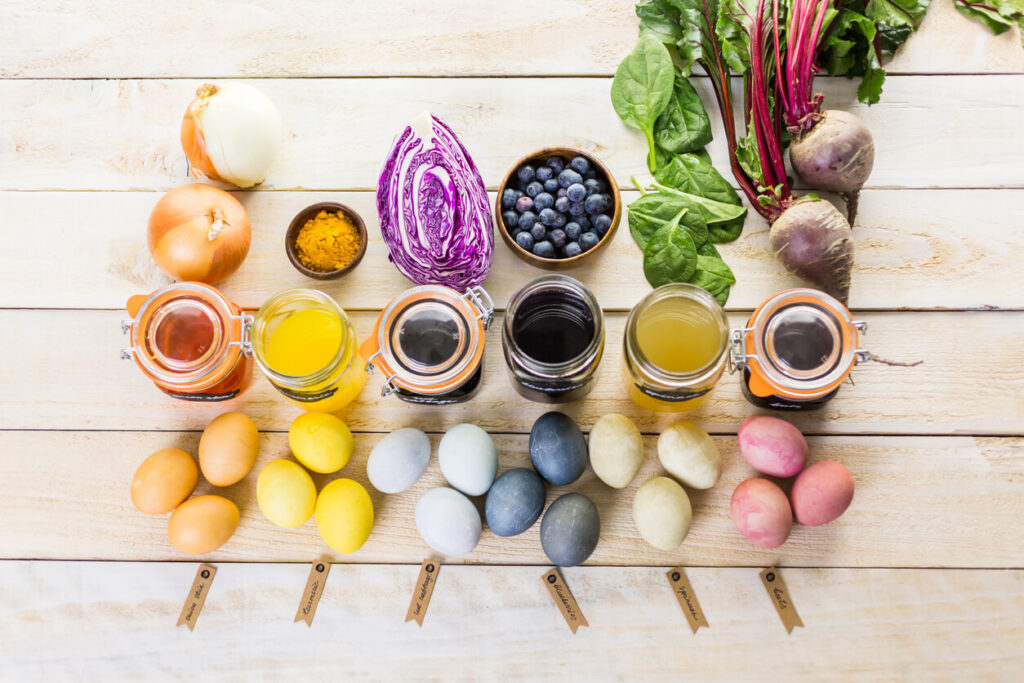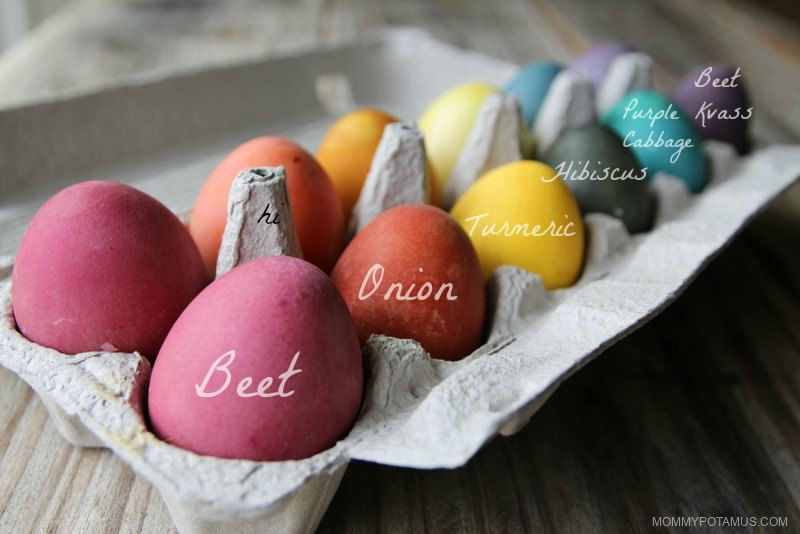If you’ve never dyed Easter eggs naturally, you have to try it at least once. It’s great fun for kids and you’ll end up with the most amazing colours.
Here’s how to use foods like cabbage, beets and onion skins to create your own egg dyes.
How to make natural Easter egg dyes:
- Combine 1 quarter water and 2 tablespoons white vinegar in a medium pot.
- Bring it to a boil and add your dye ingredients for the egg colour of your choice (listed below). Lower the heat and let simmer for 30 minutes.
- Let cool. Strain the dye to remove any food fragments.
- Add the eggs to the strained dye and let soak for at least 30 minutes. When it reaches the desired colour, remove the egg with tongs and pat it dry with paper towels.

Natural egg dye colour cheatsheet:
Get your desired color by adding these ingredients to the water and vinegar mixture and then following the four steps outlined above (unless otherwise noted).
Red/Dark Pink Eggs:
Add 4 cups chopped beets and follow the instructions above.
Orange Eggs:
Add 4 cups yellow onion skins and follow the instructions above. For a brighter orange, let the eggs sit in the dye overnight.
Light Orange:
Bring 2 cups water to a boil. Add 4 Tbsp paprika and white vinegar, and mix until combined. Pour the mixture into a jar and let cool to room temperature. Add an egg and soak until you are happy with the color. Remove with a slotted spoon and rinse with cool water. Let dry.
Yellow:
Add 3 Tbsp turmeric and follow the instructions above.

Light Blue:
Add 3 cups chopped red or purple cabbage and follow the instructions above. For a brighter blue, let the eggs sit in the dye overnight.
Dark Blue:
Add 4 cups blueberries and follow the above instructions.
Deep Red:
Add skins from 6 red onions. Add in 2 cups of water and 3 Tbsp of white vinegar to the pot. Bring the mixture to a boil and simmer for 15 minutes. Let the mixture cool to room temperature and strain the liquid into your jars. Add an egg and let soak until you are happy with the color. Remove with a slotted spoon and rinse with cool water. Let dry.
Green:
Add spinach leaves to a saucepan and pour in 2 cups cold water and 4 Tbsp white vinegar. Bring it to a bowl and follow the steps listed above.
Purple:
Pour about a cup of red wine into a jar. Add an egg and let soak until you are happy with the color. Remove with a slotted spoon and rinse with cool water. Let dry.
Burnt Orange:
Boil water in a tea kettle. Pour water into a jar with 3 black tea bags and let steep for 30 minutes. Let the water cool at room temperature. Add an egg and let soak until you are happy with the color. Remove with a slotted spoon and rinse with cool water. Let dry.
Source: goodhousekeeping.com



